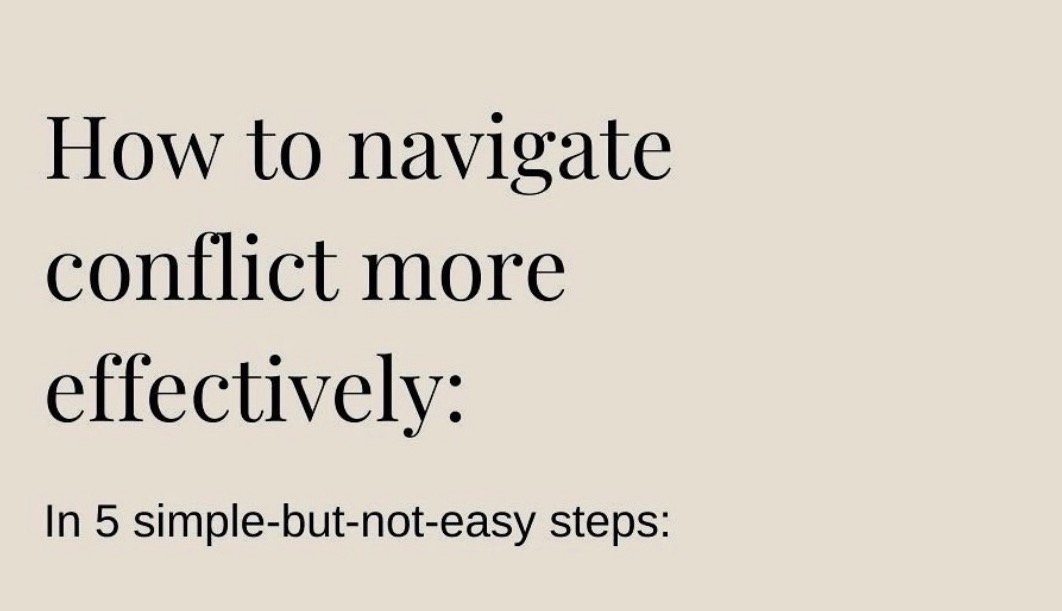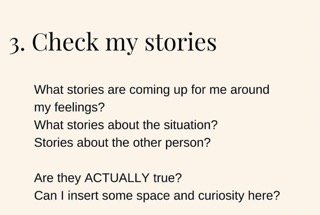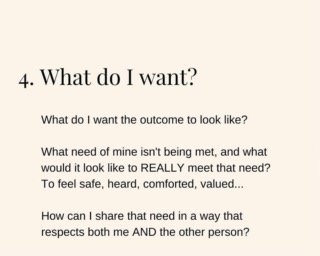Navigating Conflict: Insights from the Wisdom Traditions
Conflict is a constant companion on our journey through life, and it can arise in any situation. Whether it's a minor disagreement with a friend or a major argument with a loved one, conflict has the potential to cause pain and suffering.
However, it doesn't have to be this way. Conflict can also be an opportunity for growth, understanding, and positive change.
In this article, I offer you these insights on how to navigate conflict with grace and wisdom.
First and foremost, it's important to approach conflict with a calm and centred mind. Take a deep breath, and remind yourself that conflict is a natural part of the human experience.
Listen to the other person's perspective with an open heart, and seek to understand their point of view. This will help you to find common ground and work towards a resolution that is acceptable to everyone involved.
Next, communicate with clarity and respect. Speak from the heart, and express your own perspective and concerns in a way that is both honest and kind.
Avoid attacking the other person or making assumptions about their intentions. Instead, focus on the issue at hand, and seek to find a solution that works for everyone.
Remember that conflict is not about winning or losing. It's about finding a way forward that is mutually beneficial. Brainstorm solutions together, and be willing to compromise if necessary.
This requires a willingness to let go of ego and attachment to a specific outcome. Instead, cultivate a spirit of openness and flexibility.
Finally, once the conflict has been resolved, take time to reflect on the experience. What did you learn about yourself and the other person? What insights did you gain into the nature of conflict and human relationships?
Use this knowledge to grow and evolve as a person, and to improve your communication and conflict-resolution skills in the future.
The wisdom traditions, which include various spiritual and philosophical systems, offer insights and practices for navigating conflict in a constructive way. Here are some key principles and strategies from different wisdom traditions:
Buddhism: In Buddhism, conflict is seen as a result of ignorance, attachment, and aversion. The way to navigate conflict is through developing awareness, compassion, and skillful means. The practice of mindfulness helps to cultivate awareness of one's own emotions and reactions, as well as those of others. Compassion involves seeing the suffering of others and working towards their well-being, even if one disagrees with them. Skillful means refer to finding creative solutions that are beneficial to all parties involved.
Taoism: In Taoism, the emphasis is on the natural flow of things, and conflict arises when there is resistance to this flow. The way to navigate conflict is to practice non-resistance and non-attachment. This involves accepting things as they are, and not clinging to fixed ideas or desires. By letting go of attachments, one can see the larger picture and find a way to work with the natural flow of events.
Hinduism: In Hinduism, conflict is seen as a result of the ego or the false sense of self. The way to navigate conflict is through self-inquiry and self-transcendence. This involves questioning one's own beliefs and assumptions, and recognizing the deeper, universal self that is beyond the individual ego. By transcending the ego, one can see the interconnectedness of all beings and find a way to resolve conflicts in a harmonious way.
Confucianism: In Confucianism, the emphasis is on cultivating virtue and social harmony. The way to navigate conflict is through the practice of the five virtues: benevolence, righteousness, propriety, wisdom, and faith. These virtues involve treating others with kindness and respect, acting in accordance with moral principles, and finding the appropriate balance in social interactions. By cultivating these virtues, one can create a harmonious society where conflicts are resolved peacefully.
Judaism, Christianity, and Islam: These Abrahamic religions emphasize the importance of forgiveness, reconciliation, and peace. The way to navigate conflict is through the practice of forgiveness, which involves letting go of resentment and anger towards others. This can lead to reconciliation and a restoration of relationships. The practice of peace involves working towards social justice and promoting the well-being of all, even in the midst of conflict.
Overall, the wisdom traditions offer a rich tapestry of insights and practices for navigating conflict in a constructive way. By cultivating awareness, compassion, skillful means, non-resistance, non-attachment, self-transcendence, virtue, forgiveness, and peace, we can transform conflicts into opportunities for growth, understanding, and healing.In conclusion, navigating conflict requires a combination of wisdom, compassion, and mindfulness.
By approaching conflict with an open heart and a willingness to learn, you can transform even the most difficult conflicts into opportunities for growth and positive change. As the wise sage, I encourage you to embrace conflict as a teacher and a friend, and to use it to deepen your understanding of yourself and others.
Through mindfulness and personal one-to-one life coaching, I can assist you in developing a deeper understanding of yourself and guide you in approaching yourself with curiosity and kindness. My system provides practical tools and techniques to help you manage difficult emotions and thoughts, and cultivate a more compassionate and accepting attitude toward yourself.
Mindfulness coaching is a supportive approach that can positively impact every aspect of your life. Whether you're struggling with stress, anxiety, or self-doubt, or seeking personal growth and self-improvement, mindfulness coaching can help you gain clarity, build resilience, and enhance your overall well-being.
I am dedicated to helping you unlock your full potential and live a more fulfilling and meaningful life. Through a personalized approach tailored to your unique needs, I will empower you to cultivate mindfulness, self-compassion, and positive change in your life.
Book your complimentary session with David today and take the first step towards developing a more fulfilling and meaningful life.
During your complimentary session with me, you'll have the opportunity to discuss your goals and concerns in a non-judgmental and confidential environment. You'll also learn more about how mindfulness coaching can benefit you and support you in navigating life's challenges with greater ease and awareness.







